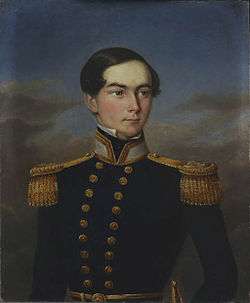Maria von Hanau-Hořowitz
Princess Maria of Hanau and Hořowitz (22 August 1839 – 26 March 1917) was a German aristocrat.
Maria of Hanau-Hořowitz | |
|---|---|
| Born | 22 August 1839 Schloss Wilhelmshöhe |
| Died | 26 March 1917 (aged 77) Bonn |
| Noble family | House of Hesse |
| Spouse(s) | |
| Issue
Prince Friedrich Prince Carl Princess Elisabeth Princess Marie Princess Luise | |
| Father | Frederick William I, Elector of Hesse |
| Mother | Gertrude von Hanau |
Early life
Princess Maria was the youngest daughter of Frederick William, Elector of Hesse-Kassel (1802–1875), and his morganatic wife, Gertrude Falkenstein (1803–1882), whom he later elevated to Princess of Hanau and Hořowitz (German: Fürstin von Hanau und zu Hořowitz).[1]
Her paternal grandparents were Prince William, later William II, Elector of Hesse, and Princess Augusta of Prussia (a daughter of King Frederick William II of Prussia). Her maternal grandparents were Johann Gottfried Falkenstein and, his wife, wife Magdalena Schulz.[1]
Personal life

Prince Frederick of Holstein (later the pretender to the throne of Schleswig-Holstein) asked for Princess Maria's hand, but he was rejected. He eventually married Princess Adelheid of Hohenlohe-Langenburg (the second daughter of Ernst I, Prince of Hohenlohe-Langenburg and Princess Feodora of Leiningen, who was the older, maternal half-sister of the British Queen Victoria) on 11 September 1856.
On 27 December 1857, Maria married Prince William of Hesse-Philippsthal-Barchfeld (1831–1890), son of Landgrave Charles. With this marriage, her mother hoped to bind her family closer to the House of Hesse; the Grand Duke of Hesse-Darmstadt, however, regarded William's marriage as morganatic and refused to acknowledge the five children from this marriage as Hessian princes. The children nevertheless used their father's style and title. They were:[1]
- Friedrich Wilhelm, Prince of Ardeck (1858–1902), who married an American, Anne Hollingsworth Price, on 17 December 1890.[2]
- Carl, Prince of Ardeck (1861–1938), who married Anne Elise Strehlow in 1891.[3]
- Elisabeth, Princess of Ardeck (1864–1919), who married Count Ferdinand of Ysenburg-Büdingen in Philippseich in 1886.[1]
- Marie, Princess of Ardeck (1867–1868), who died in infancy.[1]
- Luise, Princess of Ardeck (1868–1959), who married Prince Rudolf of Lippe (1856–1931), a son of Julius, Count of Lippe-Biesterfeld, in 1889.[1]
They divorced on 18 March 1872. In August 1873, William married his niece, Princess Juliane of Bentheim and Steinfurt (daughter of his older half-sister Bertha and her husband, Prince Ludwig of Bentheim and Steinfurt). His third marriage was to Princess Juliane's older sister and his fourth marriage was to Princess Auguste of Schleswig-Holstein-Sonderburg-Glücksburg, a daughter of Friedrich, Duke of Schleswig-Holstein-Sonderburg-Glücksburg and niece of King Christian IX of Denmark. They were the parents of Prince Christian of Hesse-Philippsthal-Barchfeld. Prince William died at Rotenburg on 17 January 1890.[1]
Later life
She and her two surviving daughters moved to Wiesbaden. She continued to style herself Princess of Hesse, and got into a dispute about her title with Frederick William, the former heir presumptive of Hesse-Kassel, who held that she'd lost the right to use that title due to her divorce. After she lost the court case, she asked Emperor William I to provide her with a new title. The imperial court sent her a list of castles in Nassau to choose from — apparently court officials in Berlin were confused about the various former principalities that made the new Hesse-Nassau province — and she chose Ardeck. Ardeck Castle is a ruin near Holzheim, which is situated in today's Rhein-Lahn-Kreis. From 28 July 1876, she and her children were styled Princess of Ardeck and Princes of Ardeck.[4]
References
- of), Melville Amadeus Henry Douglas Heddle de La Caillemotte de Massue de Ruvigny Ruvigny and Raineval (9th marquis (1914). The Titled Nobility of Europe: An International Peerage, Or "Who's Who", of the Sovereigns, Princes and Nobles of Europe. Harrison & Sons. p. 74. Retrieved 20 May 2020.
- Montgomery-Massingberd, Hugh (1977). Burke's Royal Families of the World. Burke's Peerage. p. 210. Retrieved 2 April 2020.
- Almanach de Gotha (in French). Johann Paul Mevius sel. Witwe und Johann Christian Dieterich. 1905. p. 258. Retrieved 20 May 2020.
- Michel Huberty: L' Allemagne dynastique: Les 15 familles qui ont fait l'empire, vol. 1: Hesse — Reuss — Saxe, Le Perreux-sur-Marne, 1976, ISBN 2-901138-01-2
- Philipp Losch: Die Fürstin von Hanau und ihre Kinder, in: Hanauer Geschichtsblätter, vol. 13, 1939, p. 35 ff.